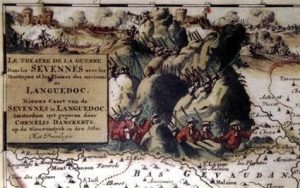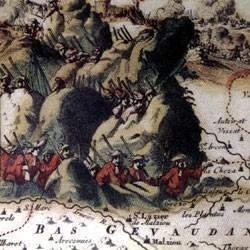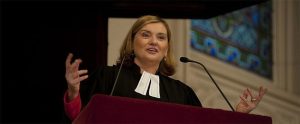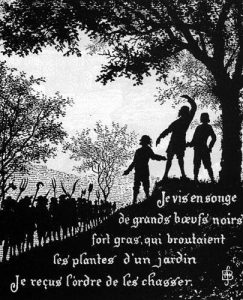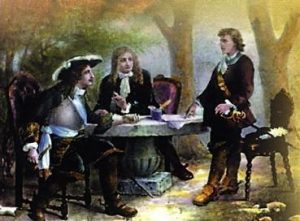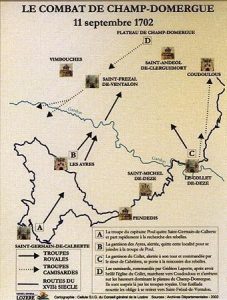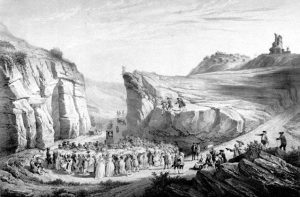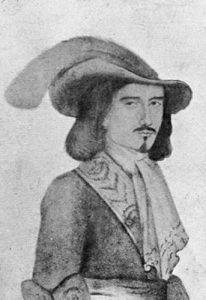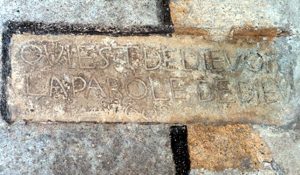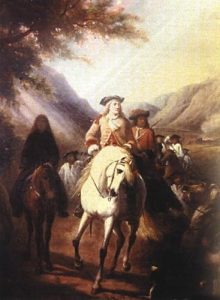Religious guerrilla warfare
In 1685, at the Revocation of the Edict of Nantes, Protestant churches were destroyed and pastors exiled. Lay people took over, lay preachers preached in secretly-held gatherings and prophets talked under the inspiration of the Holy Spirit. In the Languedoc region, faced with pitiless repression, the prophets called on the people to revolt.
The event that triggered off the war was the assassination of Father du Chayla on 24 July, 1702at the Pont-de-Monvert. Father du Chayla was the missions inspector for the Hautes-Cévennes area. The aim of the missions was to convert the Cévennes protestants. His anti-protestant zeal won him deep hatred. The actual war lasted only two years but mobilised two French field-marshals and some 25,000 soldiers. The camisards defeated the royal troops on a few occasions. Their best known leaders were Rolland and Jean Cavalier.
In May 1704, having been defeated, Jean Cavalier accepted to negotiate with filed-marshal de Villars. He surrendered and was allowed to leave France. Among the other camisard leaders, some were killed, others surrendered. Until 1710 there were attempts to renew the uprising but of them all failed.
Who were the camisards who for two years managed to keep at bay the troops of Louis XIV, one of the best armies in Europe ? They were Cévennes peasants and craftsmen organised in small local groups with permanent officers and temporary soldiers. Most of the leaders were young had had no military training. Their perfect knowledge of the area and the population’s support guaranteed the efficiency of the guerrilla warfare. Violence was extreme, both on the camisards’ side and on that of the royal troops. The latter burned down entire villages. The whole country was put to fire and sword. The main aim of this guerrilla warfare was of a religious nature : to re-introduce freedom of worship. Within camisards’ groups there was intense religious activity : secret gatherings for worship, psalm singing and praying, all under the leadership of improvised preachers or prophets. The Cévennes prophets played a key role in the war as their inspiration prompted attacks and military action. That is why some people called it “sacred warfare”.

